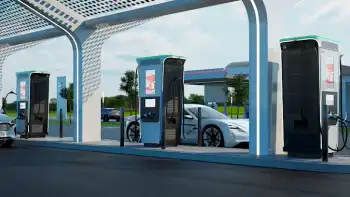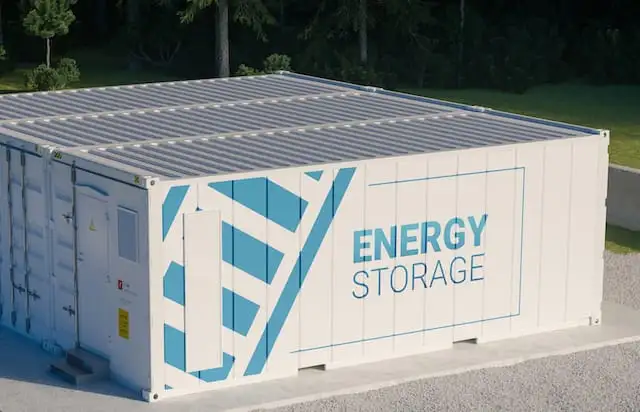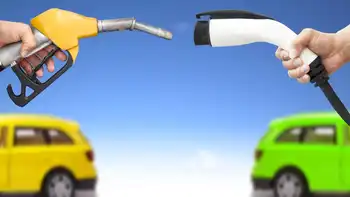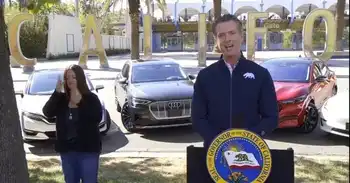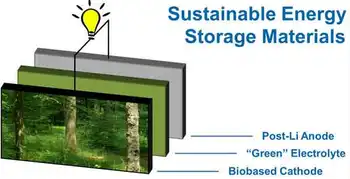Can the UK grid cope with the extra demand from electric cars?
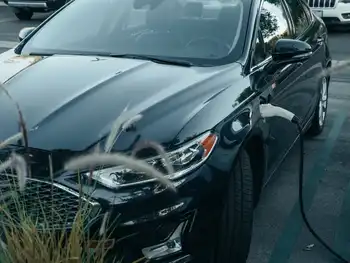
NFPA 70e Training
Our customized live online or in‑person group training can be delivered to your staff at your location.

- Live Online
- 6 hours Instructor-led
- Group Training Available
UK EV Grid Capacity leverages smart charging, V2G, renewable energy, and interconnectors to manage peak demand as adoption grows, with National Grid upgrades, rapid chargers, and efficiency gains enabling a reliable, scalable charging infrastructure nationwide.
Key Points
UK EV grid capacity is the power network's readiness to meet EV demand using smart charging, V2G, and upgrades.
✅ Smart charging shifts load to off-peak, cheaper renewable hours
✅ V2G enables EVs to supply power and balance peak demand
✅ National Grid upgrades and interconnectors expand capacity
The surge of electric vehicles (EVs) on our roads raises a crucial question: can the UK's electricity grid handle the additional demand? While this is a valid concern, it's important to understand the gradual nature of EV adoption, ongoing grid preparations, and innovative solutions being developed.
A Gradual Shift, Not an Overnight Leap
Firstly, let's dispel the myth of an overnight transition. EV adoption will unfold progressively, driven by factors like affordability and the growing availability of used models. The government's ZEV mandate outlines a clear trajectory, with a gradual rise from 22% EV sales in 2024 to 80% by 2030. This measured approach allows for strategic grid improvements to accommodate the increasing demand.
Preparing the Grid for the Future
Grid preparations for the EV revolution have been underway for years. Collaborations between the government, electricity providers, service stations, and charging point developers are ensuring grid coordination across the system. Renewable energy sources like offshore wind farms, combined with new nuclear power and international interconnections, are planned to meet the anticipated 120 terawatt-hour increase in demand. Additionally, improvements in energy efficiency have reduced overall electricity consumption, creating further capacity.
Addressing Peak Demand Challenges
While millions of EVs charging simultaneously might seem like they could challenge power grids, solutions are being implemented to manage peak demand:
1. Smart Charging: This technology allows EVs to charge during off-peak hours when renewable electricity is abundant and cheaper. This not only benefits the grid but also saves owners money. The UK government's EV Smart Charge Points Regulations ensure all new chargers have this functionality.
2. Vehicle-to-Grid (V2G) Technology: This futuristic concept transforms EVs into energy storage units, often described as capacity on wheels, allowing owners to sell their unused battery power back to the grid during peak times. This not only generates income for owners but also helps balance the grid and integrate more renewable energy.
3. Sufficient Grid Capacity: Despite concerns, the grid currently has ample capacity. The highest peak demand in recent years (62GW in 2002) has actually decreased by 16% due to energy efficiency improvements. Even with widespread EV adoption, the expected 10% increase in demand remains well within the grid's capabilities with proper management in place.
National Grid's Commitment:
National Grid and other electric utilities are actively involved in upgrading and expanding the grid to accommodate the clean energy transition. This includes collaborating with distribution networks, government agencies, and industry partners to ensure the necessary infrastructure (wires and connections) is in place for a decarbonized transport network.
Charging Infrastructure: Addressing Anxiety
The existing national grid infrastructure, with its proximity to roads and train networks, provides a significant advantage for EV charging point deployment. National Grid Electricity Distribution is already working on innovative projects to install required infrastructure, such as:
- Bringing electricity networks closer to motorway service areas for faster and easier connection.
- Leading projects like the Electric Boulevard (inductive charging) and Electric Nation (V2G charging) to showcase innovative solutions.
- Participating in the Take Charge project, exploring new ways to facilitate rapid EV charging infrastructure growth.
Government Initiatives:
The UK government's Rapid Charging Fund aims to roll out high-powered, open-access charge points across England, while the Local EV Infrastructure Fund supports local authorities in providing charging solutions for residents without off-street parking, including mobile chargers for added flexibility.
While the rise of EVs presents new challenges, the UK is actively preparing its grid and infrastructure to ensure a smooth transition. With gradual adoption, ongoing preparations, and innovative solutions, the answer to the question Will electric vehicles crash the grid? is a resounding yes. The future of clean transportation is bright, and the grid is ready to power it forward.





